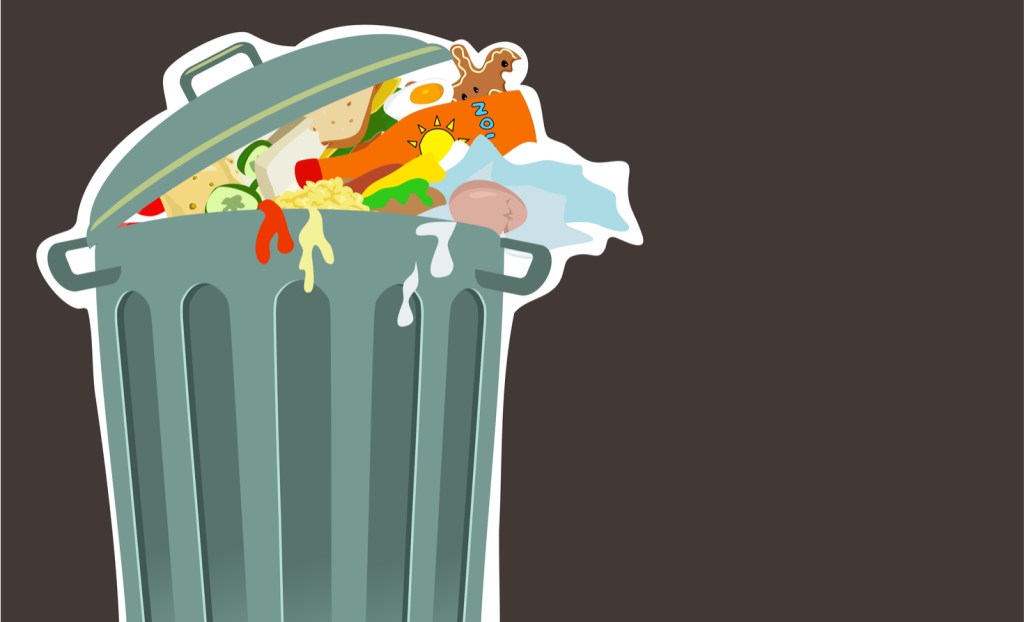This blockchain startup is hungry to address the grocery industry’s food waste dilemma
A new app from startup INS Ecosystem, which will be tested in several markets starting later this year, could help balance supply and demand. Read More

The fact that anywhere between 33 percent and 40 percent of all food grown is actually wasted presents both a huge sustainability challenge and a tremendous opportunity for new efficiencies throughout the distribution system.
During the recent GreenBiz 18, a panel consisting of manufacturers, retailers and NGOs agreed that the situation could be vastly improved with better information flow, coordination and tracking — things that technology can easily handle, if applied systemically.
INS Ecosystem, a startup created by the founders of Russian grocery delivery service Instamart, hopes to address that opening with software designed to help consumable goods sell directly to consumers more efficiently. The system, scheduled for a limited launch in late 2018, uses blockchain to manage transactions and to underpin a token system to fulfill orders, adjust prices and offer rewards.
Co-founder Peter Fedchenkov said that the platform could deliver cost savings to consumers of up to 30 percent, while eliminating as much as 130 million pounds of food waste annually.
“Today, the industry needs all of the help it can get: from supply chain traceability and tracking the whereabouts of inventory at every stage, to product safety monitoring and more,” Fedchenkov wrote in a company blog in October. “Blockchain is here to help retailers improve the quality of groceries and reduce fraud, but more importantly, it allows farmers to trade directly with end buyers, provide them with lower prices and enhanced shopping experience.”
What’s the underlying problem? Grocery stores, in their attempts to keep shelves full, often end up wasting food, according to Fedchenkov. Produce, for example, is rotated out as it becomes ripe for fear that it won’t sell. Efficiencies could be realized by converting the grocery business from a push-based system to a pull, resulting in better coordination between buyer and seller and less excess inventory, which translates into less waste, Fedchenkov said.
Here’s how the technology works. According to an INS Ecosystem whitepaper (PDF), “The INS platform is a decentralized marketplace that allows manufacturers to join, publish their products for sale, carry out promotion and loyalty campaigns, and get feedback from consumers. It enables consumers to order those products and facilitates the order fulfillment process.”
The INS tokens (a form of digital coins) are used to both fund development and expansion of the program, and also to facilitate, the order, payment and fulfillment process, as well as the delivery of rewards to customers for loyalty, referral and feedback.
The model is based on a relationship nurtured with consumers. By collecting data from a user’s social media accounts, INS Ecosystem can develop highly individualized offers, Fedchenkov said.
So, what industry players is the startup working with?
INS Ecoysystem claims that seven of the top 20 fast-moving consumable goods companies have confirmed their interest. It has announced relationships with food companies in Europe (mainly in the Netherlands), including Aviko, Dubro, Zijerveld Cheese, Bake Five, 2 Sisters Storteboom, Gulden Krakeling and Henri.
The company’s presentation at the British Brands Group annual meeting was attended by Coca-Cola, Procter & Gamble, Reckitt Benckiser, Mars, Henkel and others. And INS recently signed an agreement with PostNL, which will become a delivery partner in the Netherlands.
The idea of using blockchain technology to improve sustainability in the food interest is gaining momentum, although this retail application offers a new twist. Previous efforts have focused on using the blockchain to trace items as they move throughout the supply chain from food source to distribution location to shelf to table. Walmart is trialing this idea with produce and pork, citing food safety concerns. Likewise, Cargill is using blockchain to track turkeys from farm to market.
According to a U.N. FAO study, the postharvest and processing stages of food production account for 21 percent of the waste in North America, compared to 8 percent at the retail stage. In China, those numbers are 29 percent vs. 13 percent for retail. Using blockchain to address the problem at both stages potentially could help displace or reduce the size of grocery stores. It also could help the industry save on energy and land use.
Editor’s note: This story was updated April 6 to clarify the state of INS Ecosystem’s relationships with manufacturers.












